If you are going through treatment for childhood cancer, it is important to attend all your medical appointments. Childhood cancer survivors are at an increased risk of developing other medical issues such as heart disease, weak bones, and lung problems. Regularly seeing your doctors will help prevent or manage these potential issues.
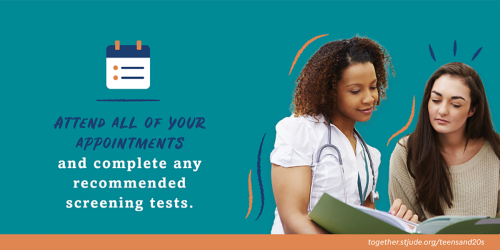
Physical activity is important for weight management, disease prevention, and cardiovascular health. It is recommended to get 300 minutes of physical activity every week.
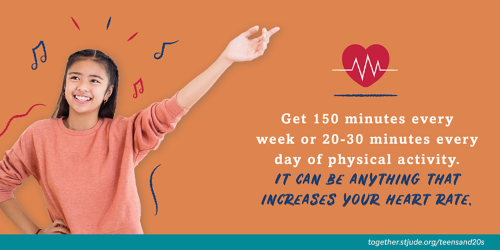
Eat a variety of foods that include lean meats (chicken, turkey, lean beef, fish), colorful vegetables (leafy greens, carrots, zucchini, eggplant, squash, peppers, fresh fruits (apples, grapes, pears, oranges, bananas, cherries), and complex carbohydrates (brown rice, sweet potatoes, quinoa, whole grain pasta, beans).

During and even after cancer therapy, many patients feel very tired all the time. If you do not sleep enough, or sleep poorly, you are at an increased risk of obesity, getting sick, and depression.
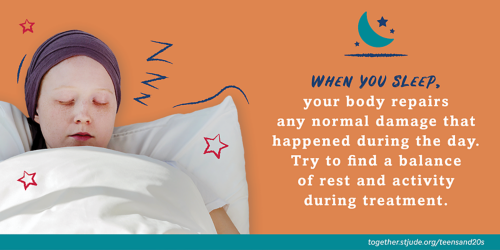
Your mental health is just as important as your physical health – and they can affect each other. Make sure you take time for yourself when you feel overwhelmed or stressed. Read a book, go for a walk, spend time with a pet, or meditate. Ask to speak to a psychologist, social worker, or clergy member if you need to discuss your mental health.
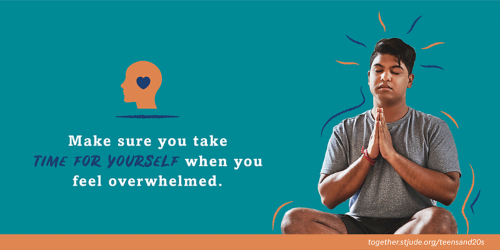
During cancer treatment, you may not be able to spend quality time with family and friends because you spend a lot of time at the hospital or you do not want to be exposed to illness. If you can’t spend time with your loved ones in person, make sure you connect with them virtually.
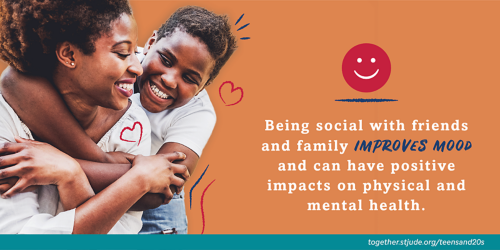
Too much screen time can lead to obesity, sleep problems, headaches, and vision problems. Try turning off the TV and staying off your phone an hour before bedtime so that your brain has time to “wind down.”

Did you know it’s important to exercise your brain just like you exercise your body? Childhood cancer survivors are at an increased risk for memory problems, thinking abilities, and problem solving.
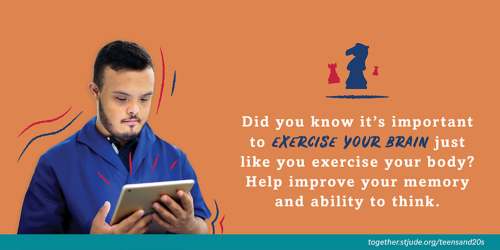
A recent study highlights the value of leading a healthy lifestyle for cancer survivors.
—
Reviewed: November 2020